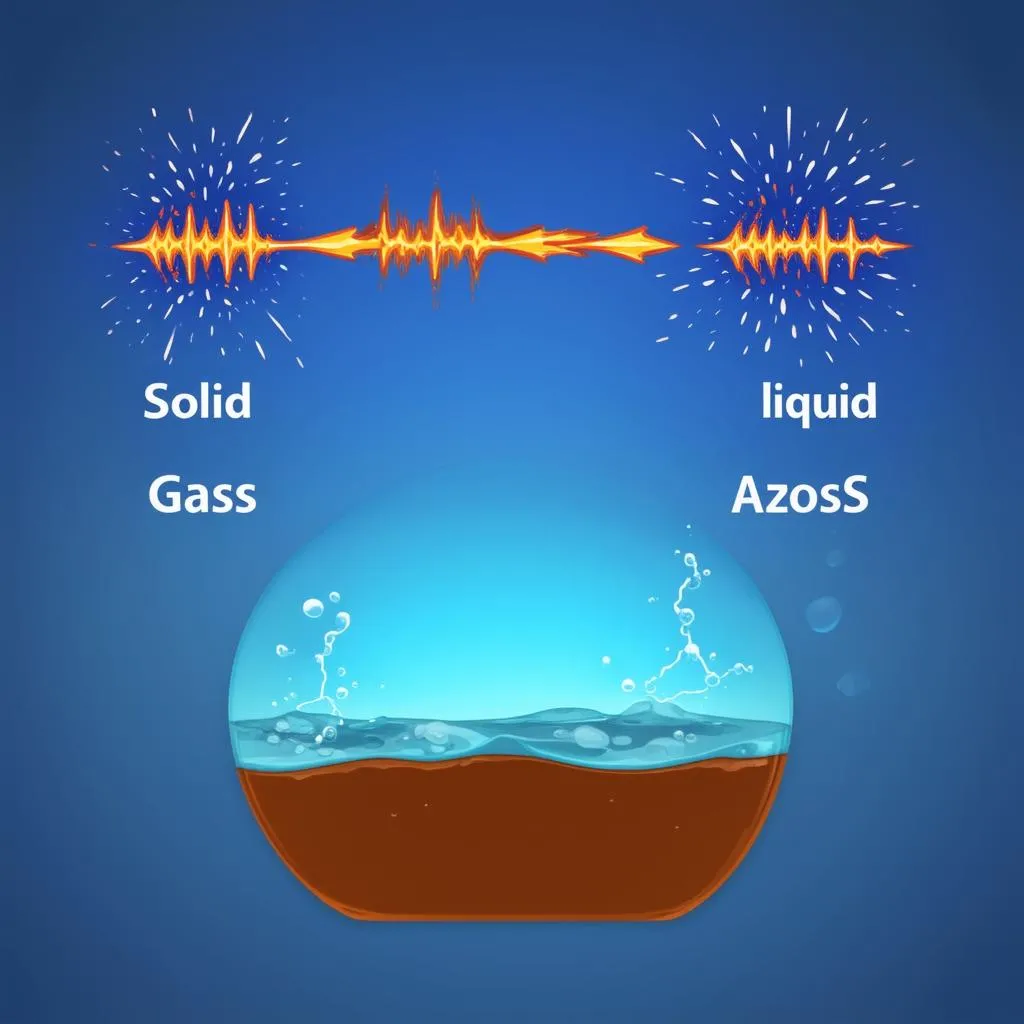Have you ever noticed how different sounds seem in different environments? The roar of a plane taking off sounds different at the airport than it does when you’re hiking in the Himalayas. That’s because sound travels differently through various mediums. But what exactly does sound travel fastest through? Let’s dive into the science behind sound and its fascinating behavior.
The Science of Sound
Sound is a form of energy that travels in waves. These waves are created by vibrations, like when you clap your hands or pluck a guitar string. These vibrations cause the particles in the surrounding medium (like air, water, or solids) to vibrate as well, creating a chain reaction that transmits the sound energy.
The speed of this transmission depends on how tightly packed the particles in the medium are. The closer the particles, the faster they can bump into each other and pass the vibration along.
What Does Sound Travel Fastest Through: Solids, Liquids, or Gases?
Here’s the answer: sound travels fastest through solids, then liquids, and slowest through gases.
Why Solids Are the Sound Superhighway
Think of a time you’ve been at a concert, feeling the music pulse through your body. That’s because the molecules in solids, like the steel beams in a concert hall, are packed incredibly tightly together. This allows sound waves to travel rapidly from particle to particle.
For instance, the speed of sound in steel is roughly 17 times faster than in air!
Liquids: A Speedy Medium
In liquids, like water, the molecules are closer together than in gases but farther apart than in solids. This means sound travels faster through water than air but not as fast as through solid objects.
Imagine scuba diving in the Great Barrier Reef. You can hear the calls of whales and dolphins underwater because sound travels faster and farther in water than in air.
Gases: The Slow Lane for Sound
Gases, like air, have molecules spread far apart. This wide spacing means sound waves have a longer distance to travel between particles, making sound travel the slowest in gases.
Think of the Grand Canyon. If you yell across the canyon, your voice will take a while to reach the other side because sound travels relatively slowly through air.
Factors Affecting Sound Speed
Besides the medium, other factors can influence sound speed, such as:
- Temperature: Sound generally travels faster in warmer temperatures.
- Density: Denser materials typically transmit sound faster.
Sound and Travel: A Symphony of Experiences
Understanding how sound behaves in different mediums enriches our travel experiences. From the echoing calls of exotic birds in a rainforest to the soothing sounds of waves crashing on a beach, sound adds a powerful dimension to the places we visit.
FAQs About Sound Travel
Q: Why does sound travel faster underwater than in air?
A: Water molecules are closer together than air molecules, allowing sound waves to transmit faster.
Q: Can sound travel in space?
A: No, sound cannot travel in the vacuum of space because there are no particles for the sound waves to vibrate.
Q: How do animals use sound to navigate?
A: Some animals, like bats and dolphins, use echolocation. They emit sound waves and listen for the echoes to determine the location of objects.
Explore More Travel Wonders
Want to learn more fascinating travel-related science? Check out these articles:
From the science of sound to the wonders of the world, TRAVELCAR.edu.vn is your guide to exploring the globe with knowledge and curiosity.
 Sound Waves in Different Mediums
Sound Waves in Different Mediums
 Scuba Diver Exploring the Great Barrier Reef
Scuba Diver Exploring the Great Barrier Reef

